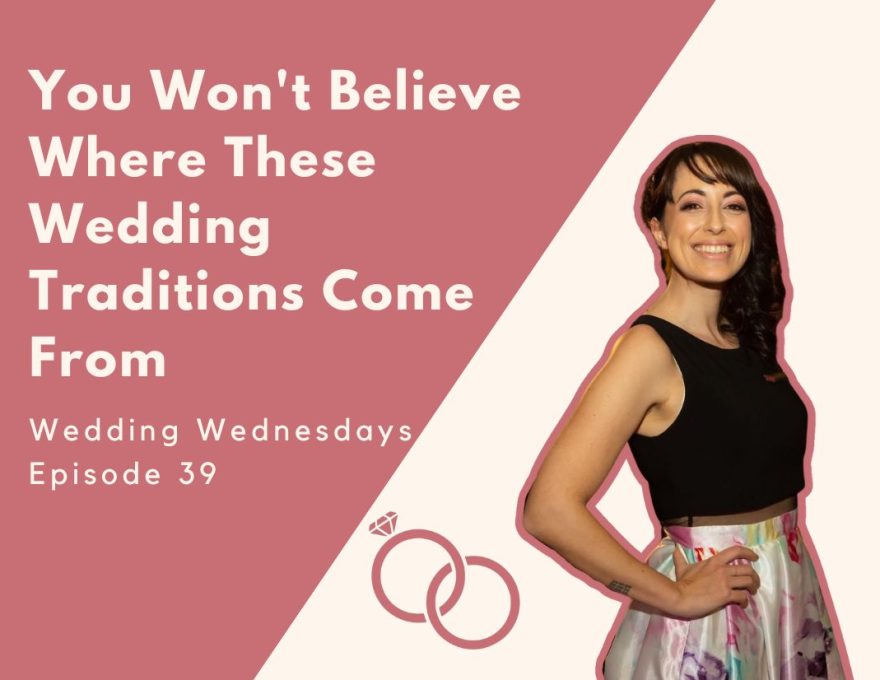When it comes to weddings, there are very few things that you have to do. The way I see it, you are having a wedding so that you can celebrate the start of a marriage, and that should be done however you want to do it. Today I’d like to break the myth about three wedding traditions, where they originate and how you can totally ditch them (if you want to!).
Episode breakdown
White wedding dress
You might be surprised to find out that the symbolism behind the white wedding dress actually has nothing to do with purity. Many brides wonder, “Can I wear a white wedding dress if I’m not a virgin?” and the simple answer is: YES!
You might already be living with your partner and you may even have children together already. Wearing a white dress is something you can choose to wear, perhaps because it symbolizes a new change in your relationship. If this is what you want to do, do it.
The white wedding dress was actually made popular by Queen Victoria when she chose to wear a white court dress when she married Prince Albert in 1840. Before this, brides wore heavily embroidered wedding gowns, with red being one of the more popular choices.
Feel like white (or ivory) just isn’t your thing? Change it up and select a colour that you love! In the last few years, we’ve seen blush pink, champagne and grey wedding dresses.
Walk down the aisle with your dad
If you’ve never researched the origin of this tradition, you’re in for another surprise. In the day of arranged marriages, the Father of the Bride would walk her down the aisle as part of the bartering agreement. In those days, female children were considered to be the property of their fathers, so the tradition of “giving away” really just signified that the bride’s family no longer had control over her or her possessions.
These days, brides often choose to include their fathers in their walk down the aisle, as another kind of symbol. The act of walking his daughter down the aisle is now seen as a symbol of a father giving his blessing over the marriage.
Not all women have a good relationship with their father. In fact, some women attribute the “dad” title to more than one man. A stepdad, grandfather or another family member may be the one that has a more significant relationship with the bride. And of course, there are plenty of independent women who love the idea of walking down the aisle solo!
Church ceremony
There are plenty of reasons to get married in a church, even if you aren’t religious. Many people describe a church as ‘serene’ or ‘peaceful’. Churches have an atmosphere that makes getting married there a very special experience. Another bonus is that there are loads of really beautiful churches that will complement the significant occasion that marriage is.
That said, to be legally married in Ireland, one does not need to get married in a church. So getting married at another location is perfectly acceptable and your marriage will still be legal, should you follow the correct registration process.
Religious Ceremony – Catholic Church, Protestant Church, Muslim, Pagan, Multi-faith, or any other type of religious ceremony. For the majority of these, you will be going to the religious building (such as a church) or the solemniser can go out to your wedding venue.
Most legal celebrants and solemnisers are able to legally marry you without any sort of religion or faith-based ceremony. They are all-inclusive and able to marry anyone or any faith or no faith.
Does your venue offer a beautiful garden with scenic views which you want to use as the backdrop to your ceremony? Are you not particularly religious and prefer a secular setting? Do you love your church, but want to get married somewhere else? All of these are acceptable reasons to exchange vows in the location of your choice!



